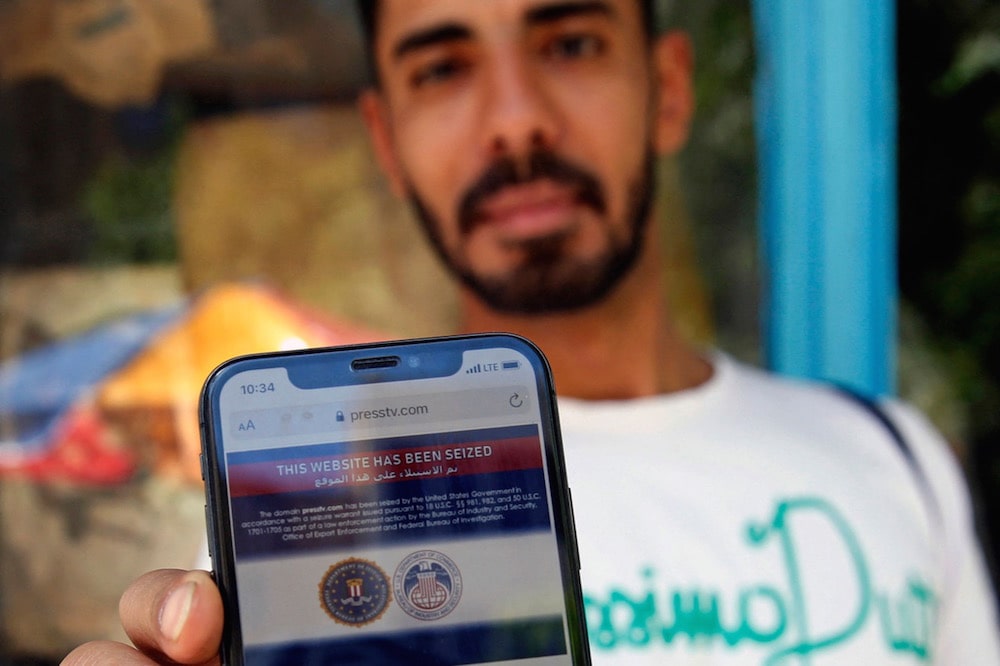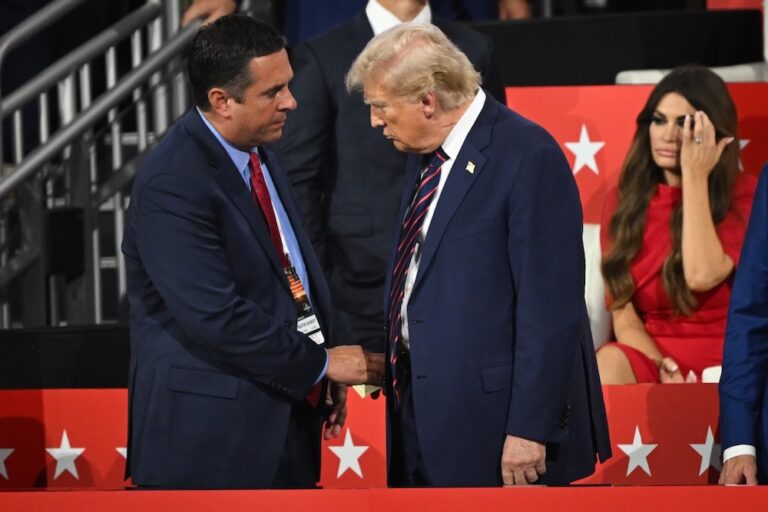The United States Justice Department should clarify its rationale for seizing dozens of media websites last week, and should publish a list of all websites targeted for allegedly violating sanctions.
This statement was originally published on cpj.org on 29 June 2021.
The United States Justice Department should clarify its rationale for seizing dozens of media websites last week, and should publish a list of all websites targeted for allegedly violating sanctions, the Committee to Protect Journalists said today.
On June 22, the Justice Department issued a statement saying that it had seized 33 websites affiliated with the Iranian Islamic Radio and Television Union and three linked to the Iraqi paramilitary group Kataeb Hezbollah, but did not identify the seized websites by name.
The U.S. Treasury department sanctioned the Iranian Islamic Radio and Television Union last October for allegedly being owned or controlled by the Islamic Revolutionary Guard Corps, and accused Iranian government entities of spreading disinformation and running influence operations while “disguised as news organizations or media outlets.” The U.S. State Department designed Kataeb Hezbollah as a terrorist organization in 2009.
CPJ has identified 21 of the seized outlets, some of which are openly affiliated with Iran or Kataeb Hezbollah, but others of which publish content critical of authorities in Tehran or have stated that they operate independently. CPJ could not immediately determine the identities of the other 15 websites.
Justice Department Deputy Spokesperson Kelsey Pietranto told CPJ via email that the department did not have any comments beyond its June 22 statement.
“The U.S. Department of Justice should explain exactly which websites were recently seized and why,” said CPJ Program Director Carlos Martinez de la Serna. “Press freedom should be paramount when governments take actions that could undermine access to news websites, and the United States, which hosts so many companies integral to the global internet, must set the strongest possible example.”
CPJ has identified five outlets taken offline that had clear affiliations with the Iranian government, including the Iranian state media outlets Press TV’s .com website, Al-Alam’s .net website, and Al-Kawthar TV’s .com website, as well as the .net website of the Lebanon-based satellite channel Al-Masirah, a news outlet run by Yemen’s Iran-affiliated Ansar Allah movement, and Paltoday.tv, the website of the Palestinian broadcaster Palestine Today, which is affiliated with the Iran-backed Palestinian Islamic Jihad.
Those outlets have continued publishing on other web domains following the seizures.
In Iraq, U.S. authorities seized the websites of five websites openly affiliated with Kataeb Hezbollah – Al-Etejah TV, Al-Ebaa TV, KafMedia, Al-Maalomah, and KataibHezbollah.org – as well as Asia TV, whose chairman Aras Habib is on a U.S. Treasury Department sanctions list.
Al-Ebaa TV was offline following the U.S. announcement last week, but has since resumed publishing.
However, the U.S. also seized the websites of at least 10 other outlets whose ties to Iran or Kataeb Hezbollah were not immediately clear:
- Al-Forat TV, owned by Iraqi Shia cleric and politician Ammar al-Hakim
- Afaq TV, owned by former Iraqi Prime Minister Nouri al-Maliki
- Al-Eshraq TV, affiliated with the Iraq’s Eshraq Cultural Foundation
- Al-Anwar TV, a broadcaster owned by cleric Ayatollah Sadiq Al-Husseini al-Shirazi, who is critical of the Iranian establishment
- Karbala TV, a broadcaster affiliated with the Imam Husayn Shrine in Karbala and supported by Ayatollah Ali Sistani, a critic of Iran’s influence in Iraq
- Nabaa.tv, a Lebanon-based broadcaster that airs programs critical of the Saudi government
- LuaLua TV, a U.K.-based news outlet run by Bahraini opposition supporters
- Al-Hulbayt TV, a U.K.-based broadcaster founded by Shia scholar Sayed Mahdi al-Modarreisi, a vocal critic of Saudi Arabia and Bahrain
- Al-Masar al-Oula and Al-Naeem TV, whose affiliations CPJ could not immediately determine
LuaLua TV said in a statement published on Twitter that it was not affiliated with any foreign groups, and accused the U.S. of siding with the Bahraini government. CPJ contacted LuaLua TV for comment via messaging app, but did not receive any response.
The seizures followed the election of Iranian President Ebrahim Raisi, who said he would not meet with U.S. President Joe Biden, according to reports.



